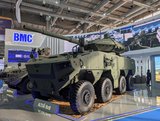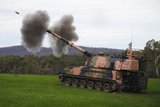GDLS secures Abrams upgrade contracts
General Dynamics Land Systems (GDLS) has received two contracts from the US Army for Abrams main battle tank upgrades, the company announced on 5 September.
Under the first contract, the company will upgrade Abrams tanks from the M1A2 System Enhancement Package 3 to the SEPv4 variant. The modernised SEPv4 includes upgrades of the commander’s primary sight, an improved gunner’s primary sight and other enhancements to the tank's sensors, lethality and survivability.
Under this contract, GDLS will deliver seven M1A2 SEPv4 prototypes to the US Army at a cost of $311 million.
The second contract will see the company produce 45 Abrams M1A2 SEPv3 for the US Army for $270 million, with production starting in fall 2017. The vehicles have improved communications, reliability, sustainment and fuel efficiency.
More from Land Warfare
-
![US Army plans Q2 prototype proposal request for its Mobile Tactical Cannon programme]()
US Army plans Q2 prototype proposal request for its Mobile Tactical Cannon programme
The US Army is seeking a mature 155mm, wheeled, self-propelled capability to replace the towed M777 howitzer in the Stryker, Mobile and Infantry Brigade Combat Teams as it targets a potential 498-unit acquisition goal.
-
![British Army’s Project Stokes 120mm mortar bids due in March 2026]()
British Army’s Project Stokes 120mm mortar bids due in March 2026
Project Stokes could see a new 120mm mortar capability enter British service, with domestic production and international partnerships central to competing bids.
-
![MKJ Warrior Series — The Nett Warrior Qualified Connector for Today’s Soldier Systems]()
MKJ Warrior Series — The Nett Warrior Qualified Connector for Today’s Soldier Systems
ITT Cannon’s MKJ Warrior connectors are designed for the harshest environments, delivering mission critical comms, navigation and USB data/power.





















